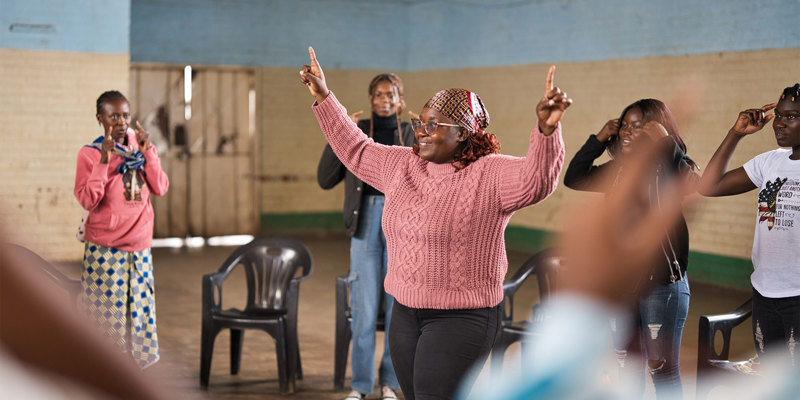Global Fund: Quash Human Rights Barriers
10 December 2013
CAPE TOWN, South Africa - In honor of International Human Rights Day, the Global Fund made an appeal to break down all human rights barriers to health, a critical factor in the goal of defeating AIDS, tuberculosis and malaria.
Today, the 65th anniversary of the Universal Declaration of Human Rights, comes five days after the death of Nelson Mandela, the legendary leader.
“Mandela embraced otherness and spoke out for the forgotten,” Mark Dybul, Executive Director of the Global Fund, said at the International Conference on AIDS and STIs in Africa, ICASA, in Cape Town, South Africa. “Let’s honor his memory and follow his exceptional example. Let’s leave nobody behind in this fight.”
The Global Fund, committed to protecting and promoting human rights, points out that discrimination and criminalization reduce access to health programs, and undermine efforts to control HIV, tuberculosis and malaria. Defeating these infectious diseases requires reaching the most vulnerable: women and girls, sex workers, people who use drugs, men who have sex with men, transgender people, people in prison and migrants.
“Ending stigma, discrimination and gender inequality is about accepting everybody into the human family,” said Dr. Dybul. “It is also the only way to defeat these diseases.”
The Global Fund encourages all governments and societies to recognize and speak openly about key affected populations, gender equality, and human rights. Those who try to deny or belittle the existence of factors that contribute to the spread of infectious diseases will only make those problems worse, just as those who denied the existence of AIDS 20 years ago actually contributed to the spread, and not the treatment, of HIV.
Some governments still deny or minimize the existence of men who have sex with men in their countries, or transgender people, or sex workers. Yet it is a fact that these people exist in every country in the world, and that they are vulnerable to HIV, TB and malaria. Ignoring them virtually guarantees a further spread of these diseases.
Similarly, some governments do not acknowledge the human rights barriers to accessing health services in their countries. Yet no country in the world is without some human rights barriers to accessing health services: from stigma and discrimination, to criminalization of key populations, to problems with policing, to gender inequality. While conditions vary, in every country, denying or ignoring the challenges is counterproductive.
It is true for gender equality, too. Women and girls are disproportionately affected by AIDS, TB and malaria, but many countries still struggle to effectively reach them with health services. Some countries deny they even have gender inequality. The Global Fund encourages frank, open discussion about gender-based violence and sexual and reproductive health wherever appropriate.
Human rights are a political issue, and also a health issue. New epidemiological intelligence shows that HIV is retreating into concentrated corners where people do not have access to health care and are at a greatest risk of becoming infected. Because TB and malaria are diseases of poverty and inequality, vulnerable populations are also most affected, with little or no access to basic services.
In line with the Global Fund’s mandate to better integrate human rights into the grant cycle, the Global Fund’s new funding model is intended to allow partners to expand country dialogue and to work in closer partnership with vulnerable communities and community-based organizations to affirm their role in the response to HIV, TB and malaria.
But country dialogue will only work if key affected populations are at the table. If they are excluded, efforts to design and organize effective health interventions will not succeed. Domestic and regional experts on human rights can help ensure that health services are designed to truly reach those most at risk and to meet their needs.
On Human Rights Day, we should remember that every UN member state struggles with human rights, and that we will all benefit if we strive to live up to the commitment to uphold the Universal Declaration of Human Rights.







